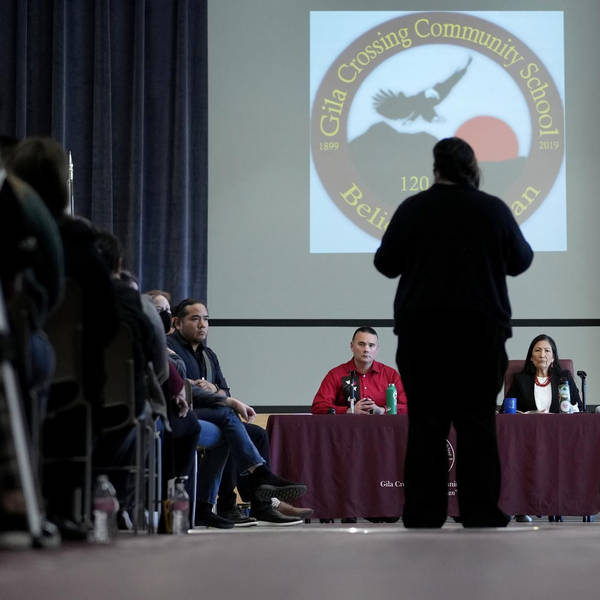
Indian Boarding Schools Are Not Ancient History
From 1819 and 1969, the U.S. removed thousands of Native children from their homes and tried to strip them of their culture. What would a reparations program for this history look like?
The U.S. Department of the Interior has begun finally wrestling with the history of the Indian boarding school program. In 2021, the department’s head, Secretary Deb Haaland, launched the Federal Indian Boarding School Initiative to not only document the history, but to understand its ongoing impact.
Last year, the Bureau of Indian Affairs published the first volume of their findings from the initiative, which found that the U.S. operated or supported 408 boarding schools across 37 states and highlighted the dire conditions many children faced in these schools. The report also called for a reorientation of federal policy to support tribal languages and culture, to counteract the harm caused by the federal Indian boarding school system.?
Allison Herrera, the Indigenous affairs reporter at KOSU, has been covering Secretary Haaland’s listening sessions and has spoken with many of the survivors. She joins Kai Wright to share these emotional testimonies and hear from Native listeners.
If you are a survivor or related to someone who went through the federal Indian boarding school program, you can find resources for healing and self care through the National Native American Boarding Healing Coalition. If you want to hear from more survivors about their experiences you can listen to:
Stolen: Surviving Saint MichaelsInvestigative journalist Connie Walker unearths Canada’s residential school program and what the path to healing looked like for survivors, including her father. She also examines the flaws in the way the Canadian government has attempted to reconcile with its role in the program through reparations.
IllumiNative: American Genocide:
Series hosts Crystal Echo Hawk (Pawnee) and Lashay Wesley (Choctaw) hit the ground in Pine Ridge, South Dakota to chronicle the actively-developing situation for themselves, covering every twist and turn in this true crime story about the compounding intergenerational pain of Native American boarding schools and whether it’s possible for a community, Native peoples, and the United States to achieve truth, healing, and reconciliation.
“In Trust” By Rachel Adams-Heard is the story of the Osage Nation and a system that moved wealth from Native hands to White ones. One that three brothers learned to operate, laying the foundation for a modern American dynasty of land and influence that continues to this day.
Established in 1884 and operative for nearly a century, the Chilocco Indian School in Oklahoma was one of a series of off-reservation boarding schools intended to assimilate American Indian children into mainstream American life. Critics have characterized the schools as destroyers of Indian communities and cultures, but the reality that K. Tsianina Lomawaima discloses was much more complex.
“Notes from America” airs live on Sunday evenings at 6pm ET. The podcast episodes are lightly edited from our live broadcasts. To catch all the action, tune into the show on Sunday nights via the stream on notesfromamerica.org or on WNYC’s YouTube channel.
We want to hear from you! Connect with us on Instagram and Twitter @noteswithkai or email us at notes@wnyc.org.
Tell us what you think. We're @noteswithkai on Instagram and X (Twitter). Email us at notes@wnyc.org. Send us a voice message by recording yourself on your phone and emailing us, or record one here.
Notes from America airs live on Sundays at 6 p.m. ET. The podcast episodes are lightly edited from our live broadcasts.
